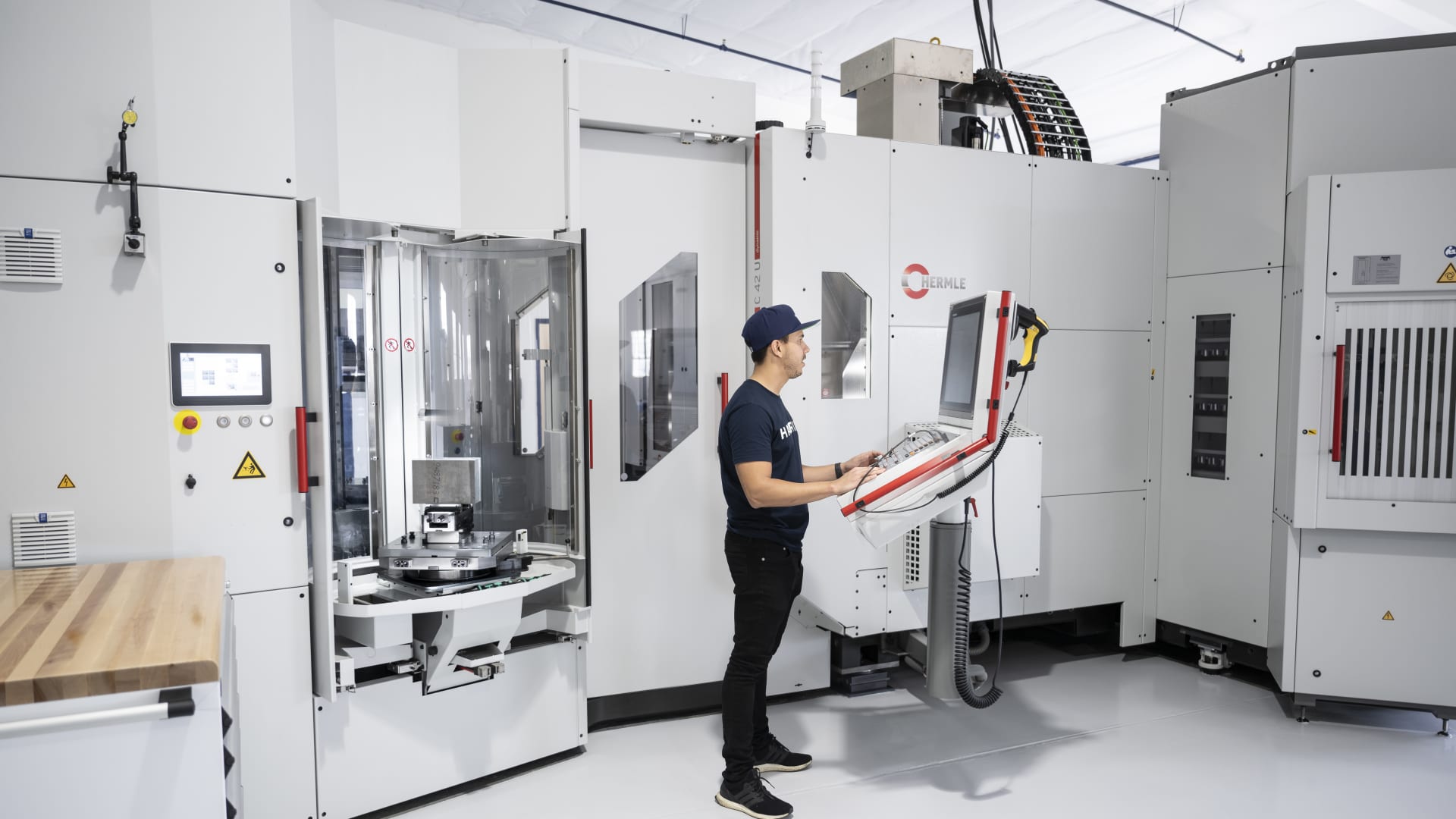Machine-parts start-up Hadrian raises $90 million as it seeks to shake up the aerospace supply chain

Machine-parts start-up Hadrian Automation raised $90 million in a new round of funding led by venture firms Lux Capital and Andreessen Horowitz, as the company works to build largely-automated factories to transform the aerospace supply chain.
“We’ve launched Factory #1 and proven that we can produce space and defense parts 10 times faster and more efficient than anybody else,” Hadrian founder and CEO Chris Power told CNBC.
The fundraise marks Hadrian’s second round of capital. Other investors in the round included Lachy Groom, Caffeinated Capital, Founders Fund, Construct Capital and 137 Ventures. Power declined to specify Hadrian’s exact valuation after the raise, but said it is between $200 million and $1 billion.
Los Angeles-based Hadrian is also adding Lux Capital partner Brandon Reeves and Andreessen Horowitz partner Katherine Boyle to the company’s board. Boyle said Hadrian’s ability to scale its approach is a key reason behind Andreessen Horowitz’s investment.
“The pace at which they’ve been able to build factories has just been extraordinary,” Boyle told CNBC.
Some of Hadrian’s new funds will go toward building Factory #2, which is planned to be nearly 100,000 sq. ft. in Torrance, California, near its current factory in Hawthorne, said Power, the CEO. The company aims to launch the Torrance factory by August, while continuing to hire quickly. Hadrian, which had six employees less than a year ago and 40 people today, expects to have about 120 employees by the end of this year, Power added.
Hadrian has three customers. Power didn’t disclose the companies but specified that the current customers all build rockets and satellites, for which Hadrian is manufacturing aluminum components. The company aims to expand its component offering into steels and other hard metals shortly.
“We’re not setting up factories that are like manufacturing lines – we’re building an abstract factory that you can drop any part into and it comes out the other side … as long as it fits within a certain size or certain material that we support, we can make anything within that,” Power said.
The machining supply chain problem
Hadrian is looking to centralize a supply chain that’s fragmented among suppliers who are spread across the country. Citing her firm’s experience investing in aerospace and defense companies, Boyle added that the current supply chain depends on “thousands of mom-and-pop machine shops” across the country. Hardware and aerospace companies often complain about this, she said.
Power estimated that there are about 3,000 of these small machine shops, which in aggregate generate about $40 billion in revenue a year manufacturing high-precision components for aerospace and defense companies.
Lux Capital partner Josh Wolfe further emphasized that these components “are not company proprietary” but vary widely in demand, from “bespoke custom” parts to “large batches.”
As many as 2.1 million manufacturing jobs are set to be unfilled by 2030, according to a study released last year by Deloitte and The Manufacturing Institute. Additionally, the average age of machinists is climbing, Boyle said, a key pressure on the labor shortage.
“The average age of many machinists is now in the mid-50s, and many are reaching this point where they’re retiring or the shops are going to be turned over to the next generation,” Boyle said. “There is this question of: Who’s going to take over those shops and who’s going to be able to continue on supplying the defense industrial base?”
Boyle added that a secondary theme in the machining labor market is that Hadrian’s automation approach “creates jobs for a new generation of machinist.”
“There are labor shortages across high-skilled trades,” Boyle said.
Hadrian is addressing this with an approach that allows the company to hire employees as machinists “who have never made a part before,” Power said. He cited examples of hires Hadrian has made from Chick-Fil-A or Walmart, with no prior experience manufacturing parts.
“We’re getting to a point where they’re making spaceflight hardware within 30 days of joining Hadrian,” Power said.
Hadrian is pairing those newly minted machinists with those who have extensive experience in the field or in software, having hired talent from the likes of Meta, Stripe, SpaceX, and others.



